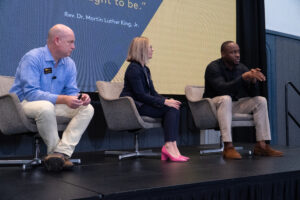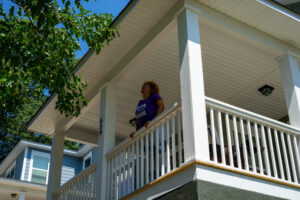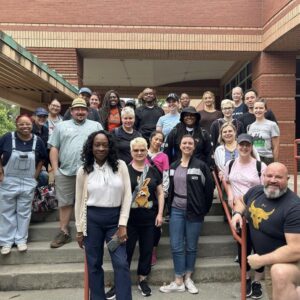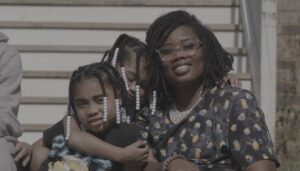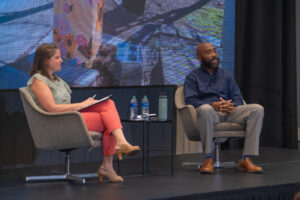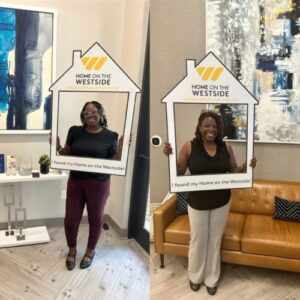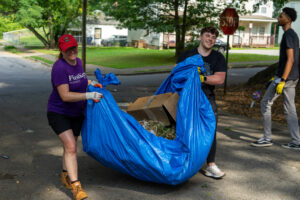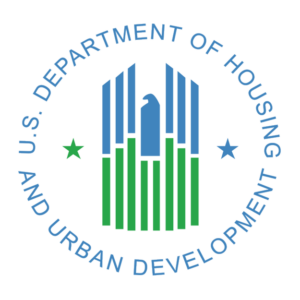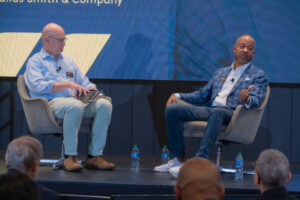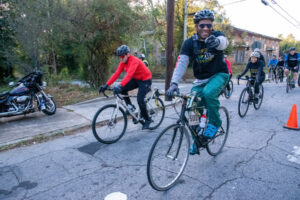Westside Future Fund hosted a fireside chat to provide an update on its “Our Next Chapter” capital campaign. Launched officially on August 2, 2023, this campaign is aimed at raising philanthropic funds to support charitable initiatives for the development of land holdings acquired over the past few years. With $55 million in philanthropic support, WFF will be able to build on this progress and leverage an additional $45 million in low-cost financing from its Impact Fund. An additional $10 million in public grants will help the organization finance:
- 285 multifamily units, of which 185 will serve families at 60% Area Median Income (AMI) and less.
- 225 single-family homes with accompanying income-qualified down-payment assistance, and
- Supporting the Anti-Displacement Tax Fund to help legacy resident homeowners stay in the community
Panelists explained the campaign’s purpose, its intended impact, and concluded with an overview.
Panelists included:
- John Ahmann, President & CEO, Westside Future Fund
- Rachel Carey, Chief Real Estate Officer, Westside Future Fund
- Derrick Jordan, Real Estate Development Consultant
The event began with a compelling testimonial video featuring individuals who had participated in one of three service areas for WFF’s signature affordable housing program “Home on the Westside.”
Westside Future Fund’s was established as a place-based non-profit focusing on equitable neighborhood revitalization on the historic Westside. WFF’s service footprint includes English Avenue, Vine City, Ashview Heights, the Atlanta University Center and Just Us. The organization has championed four impact strategies: safety and security, community health and wellness, cradle-to-career education, and mixed-income communities. WFF is now intentionally pivoting its focus to the development of quality affordable housing to ensure a mixed-income community where legacy residents and those with live, work, learn connections to the historic Westside can take part in its prosperous future.
Historically, the Westside has experienced significant disinvestment. WFF’s initial challenge was raising sufficient funds to acquire land for redevelopment. To address this challenge, a groundbreaking partnership with 10 Atlanta corporations was formed. This partnership established an Impact Fund that provided low-cost loans to Westside Future Fund for land acquisition and development, with a commitment to return the funds over 15 years. This collaboration served as a crucial enabler for WFF’s work, allowing it to acquire land for deep affordability initiatives. Due to the success of the Impact Fund, WFF now owns enough land to meet its housing development targets established in 2017: 1,500 high-quality, affordable units serving families at 60 percent AMI and less, 250 new single-family homes with down payment assistance for mortgage-ready buyers, and the establishment of the Anti-Displacement Tax Fund for legacy resident homeowners.
Panelists recognized the contributions of various philanthropic partners who played a vital role in enabling progress. The neighborhoods under Westside Future Fund’s focus had experienced significant shifts in population over the years, primarily due to historical factors, such as Jim Crow, segregation, and economic changes. Despite these challenges, these communities had a rich history of intellectual, business and faith leadership.
The Summit highlighted WFF’s efforts in acquiring blighted properties for redevelopment and its commitment to deep affordability, emphasizing that these initiatives aimed to restore the neighborhoods to their thriving historical states rather than creating something entirely new.
Panelists pointed out key achievements, including the development of various community assets such as new parks, housing initiatives, job training programs, and historic property preservation. The emphasis was on community retention, ensuring that existing residents could afford to remain in their neighborhoods as redevelopment occurred.
The presentation also delved into WFF’s land acquisition efforts, which included purchasing vacant or blighted properties to repurpose them for high-quality, affordable housing. Several case studies were presented, showcasing successful housing initiatives and their positive impacts on residents.
Westside Future Fund highlighted its significant land holdings in English Avenue and Vine City, illustrating its readiness to meet its deep affordability targets. To fund initiatives like down payment assistance, WFF announced the availability of $55 million from various sources, including public grants and philanthropic contributions.
The event concluded by presenting images of planned housing developments in English Avenue and other areas, emphasizing WFF’s commitment to creating high-quality, affordable homes.
You can learn more about WFF’s Our Next Chapter campaign here.
You can watch the full Transform Westside Summit on YouTube.

